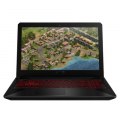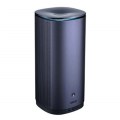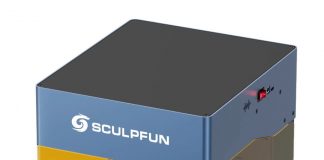Asus ZENFONE 5

-
CPU: Snapdragon 636 Octa Core 1.8GHz
-
RAM+ROM: 4GB RAM + 64GB ROM
-
OS: Android O
-
Display: 6.2 inch IPS screen
-
Battery: 3300mAh
Asus ZENFONE 5 ZE620KL
Asus is one of those companies that doesn’t have a fixed schedule. He introduced his family Zenfone 4 in September and now, a few months later, his successors arrive under the name Zenfone 5. After a Zenfone 4 whose direction we liked, but which was more of a design box for 2016, the Asus Zenfone 5 is a change that brings together all the market trends: edge removal with notch, double camera with portrait mode, stereo sound with double speaker, facial unlocking and artificial intelligence, lots of artificial intelligence. It’s a mid-range terminal that many can pigeonhole into the upper mid-range, but before that it has to prove that its camera and performance, the aspects that took that condition out of the Zenfone 4, are up to the task. The Asus Zenfone 5 comes with a glass body that has a 6.2-inch IPS Full HD+ screen, but thanks to its 19:9 aspect ratio it doesn’t feel too large.
It covers the entire DCI-P3 color space and has a brightness of 500 nits. Achieves a 90% display-to-front ratio, thanks to the use of a notch or eyebrow like the iPhone X. Despite the similar design, the lower part of the screen does not match, because instead of the screen as in the Apple terminal, we see a border like the one of the Galaxy S9. Turning to more technical details, ASUS has opted for the Snapdragon 636, a chip that offers 40% more power than its predecessor, the Snapdragon 630. It is therefore in a different league from all other terminals that continue to arrive with the Snapdragon 625. Not to mention, the energy efficiency of the chip should help ensure good battery life, thanks to a 3300 mAh battery.
It comes with 4GB or 6GB of RAM, which together should provide a more than satisfactory experience. While we tried it the feeling was not one of fluidity, but Asus employees commented on the greenness of his condition. As far as internal storage is concerned, Asus only gives you one option, 64 GB, which is currently the sweet spot to avoid any kind of problem. In addition, they can be expanded by means of a microSD card slot which is also valid for a second SIM card. The stereo sound is resolved with a 3.5 mm jack and two speakers, one of which is much bigger and more powerful than in previous generations, and the main one, located at the bottom. I must say that its power impressed me when compared to a Samsung Galaxy S8 and a Google Pixel 2 XL. It remains to be seen how good it is in terms of quality, but they have done a great job in this regard and the Asus Zenfone 5 can be a good choice for those who do not want external speakers for listening to music or podcasts at home.
The cameras of the Asus Zenfone 4 disappointed me a lot to be a terminal of 500€ in launch, and from what I could prove, I would say that the photographic system of the Asus Zenfone 5 is far superior in all senses, hardware and software. The main camera has a 12 megapixel IMX 363 sensor, a focal length of 24 millimeters and an aperture of f/1.8. Thanks to a pixel size of 1.4 micrometers, it should perform well in low light, as the terminal has an optical stabilizer. In the second we find a 120° wide-angle lens over an 8 megapixel sensor. The portrait mode, once disastrous and only applicable to people, is now much more refined, although it still has some flaws. According to Asus, the choice of wide-angle over optical zoom is due to the use of a brighter lens, the main one, for portraits, so that they can be taken in low light. On the front we see an 8 MP camera with f/2.0 aperture.
And comes the most repeated aspect by Asus, the use of artificial intelligence throughout the system, Android 8 Oreo with ZenUI 5.0, which continues to gradually wash its face and no longer has duplicate apps, opting for Google. We see the use of artificial intelligence in color management on screen, in sound, in load control, in the camera and in performance. Nothing we saw in this sense has impressed us so far, nor has any other manufacturer of high-end models.
The Zenfone 5 has proven to recognize objects and images, but the practical application of this is limited, even though the final image can be improved. As we have already said, recognising a duck does not solve any outstanding challenges for telephony. In any case, the Snapdragon 636 features the Hexagon 680 DSP (the same as the Snapdragon 820 and 821), so its capabilities in this regard are more than decent, and technically nothing is smoke.
SPECS
Product Details
| Features |
Display: 6.2 inch IPS screen CPU: Qualcomm Snapdragon 636 Octa Core 1.8GHz System: Android O Storage: 4GB RAM + 64GB ROM Cameras: 8.0MP front camera and 12.0MP + 8.0MP dual rear cameras Sensors: Proximity Sensor, Fingerprint Sensor, Ambient Light Sensor, E-compass, Gyroscope, Hall Sensor, Accelerator, Features: GPS, A-GPS, Glonass, BDS, GAL,QZSS, OTG, NFC Bluetooth: 5.0 SIM Card: dual SIM dual standby, 2 x Nano SIM card or 1 Nano SIM card and 1 TF card |
| Specification |
Brand: ASUS Language: Afrikaans, Aghem, Akan, Anarâškielâ, Azâərbaycan dili (latin), Bahasa Melayu, Bamanakan, Bosanski, Brezhoneg, Bàsàa, Català, Chimakonde, Chishona, Cymraeg, Dansk, Davvisámegiella, Deutsch, Dholuo, Duálá, Edè yorùbá, Eesti, Ekegusii, Engilsh, Español, Euskara, Euegbe, Ewondo, Filipino, Føroyskt, Français, Furlan, Gaeilge, Gaelg, Gàidhlig, Galego, Gikuyu, Hausa, Hibena, Hrvatski, Ichibemba, Igbo, Ikirundi, Indonesia, Ishisangu, Isindebele, Isizulu, Italiano, Joola, Kabuverdianu, Kak ɔ, Kalaallisut, Kalenjin, Kernewek, Khoekhoegowab, Kihorombo, Kikamba, Kimachame, Kinyarwanda, Kipare, Kiruwa, Kisampur, Kishambaa, Kiswahili, Kitaita, Kiteso, Kölsch, Koyra ciini, Koyraboro senni, Kreol morisien, Kyivunjo, Lea fakatonga, Lëtzebuergesch, Lingála, Luganda, Luluhia, Maa, Magyar, Makua, Malagasy, Maltei, Meta', Nda'a, Nederlands, Nmg, Norsk bokmål, Nuasue, Nynorsk, O'zbek(lotin), Olusoga, Oromoo, Polski, Português, Pulaar, Rikpa, Romaânâ, Rukiga, Rumantsch, Runasimi, Runyankore, Sängö, Schwiizertüüutsch, Sena, Shqip, Soomaali, Srpski(latinica), Suomi, Svenska, Taqbaylit, Tasawaq senni, Thok nath, Tshiluba, Türkçe, Walser, West-frysk, Zarmaciine, Traditional Chinese, Simplifies Chinese, Japanese Service Provider: Unlocked SIM Card Slot: Dual SIM,Dual Standby SIM Card Type: Dual Nano SIM Type: 4G Phablet CPU: Qualcomm Snapdragon 636 Cores: 1.8GHz,Octa Core External Memory: TF card up to 2TB (not included) RAM: 4GB RAM ROM: 64GB 2G: GSM 1800MHz,GSM 1900MHz,GSM 850MHz,GSM 900MHz 3G: WCDMA B1 2100MHz,WCDMA B19 850MHz,WCDMA B2 1900MHz,WCDMA B3 1800MHz,WCDMA B5 850MHz,WCDMA B6 850MHz,WCDMA B8 900MHz Network type: FDD-LTE,GSM,TDD-LTE,WCDMA WIFI: 802.11 ac Wireless Connectivity: 3G,4G,A-GPS,Bluetooth,GPS,GSM,WiFi 4G LTE: FDD B1 2100MHz,FDD B18,FDD B19 800MHz,FDD B2 1900MHz,FDD B28 700MHz,FDD B3 1800MHz,FDD B5 850MHz,FDD B7 2600MHz,FDD B8 900MHz,TDD B38 2600MHz,TDD B39 1900MHz,TDD B41 2500MHz Screen resolution: 2160 x 1080 Screen size: 6.2 inch Screen type: IPS Back-camera: 12.0MP + 8.0MP Camera type: Triple cameras Front camera: 8.0MP Video recording: Yes Music format: AAC,AMR,M4A,Midi,MP3,WAV Video format: 3GP,H.263,H.264,H.265,MPEG4 Additional Features: 3G,4G,Alarm,Bluetooth,Browser,Calculator,Calendar,Camera,E-book,Fingerprint recognition,Fingerprint Unlocking,FM,GPS,Gravity Sensing System,Hall Sensor,Light Sensing System,MP3,MP4,NFC,Notification,OTG,People,Proximity Sensing,WiFi Bluetooth Version: Bluetooth 5.0 FM radio: Yes Google Play Store: Yes I/O Interface: 2 x Nano SIM Slot,3.5mm Audio Out Port,Micophone,Speaker,TF/Micro SD Card Slot,Type-C OTG : Yes Sensor: Accelerometer,Ambient Light Sensor,E-Compass,Gyroscope,Hall Sensor,Proximity Sensor Battery Capacity (mAh): 3300mAh Battery Type: Non-removable Package size: 18.10 x 10.50 x 8.30 cm / 7.13 x 4.13 x 3.27 inches Package weight: 0.5240 kg Product size: 15.30 x 7.56 x 0.78 cm / 6.02 x 2.98 x 0.31 inches Product weight: 0.1550 kg |
REVIEWS
Disclaimer Note
Ratings are based on objective reviews from our users.











